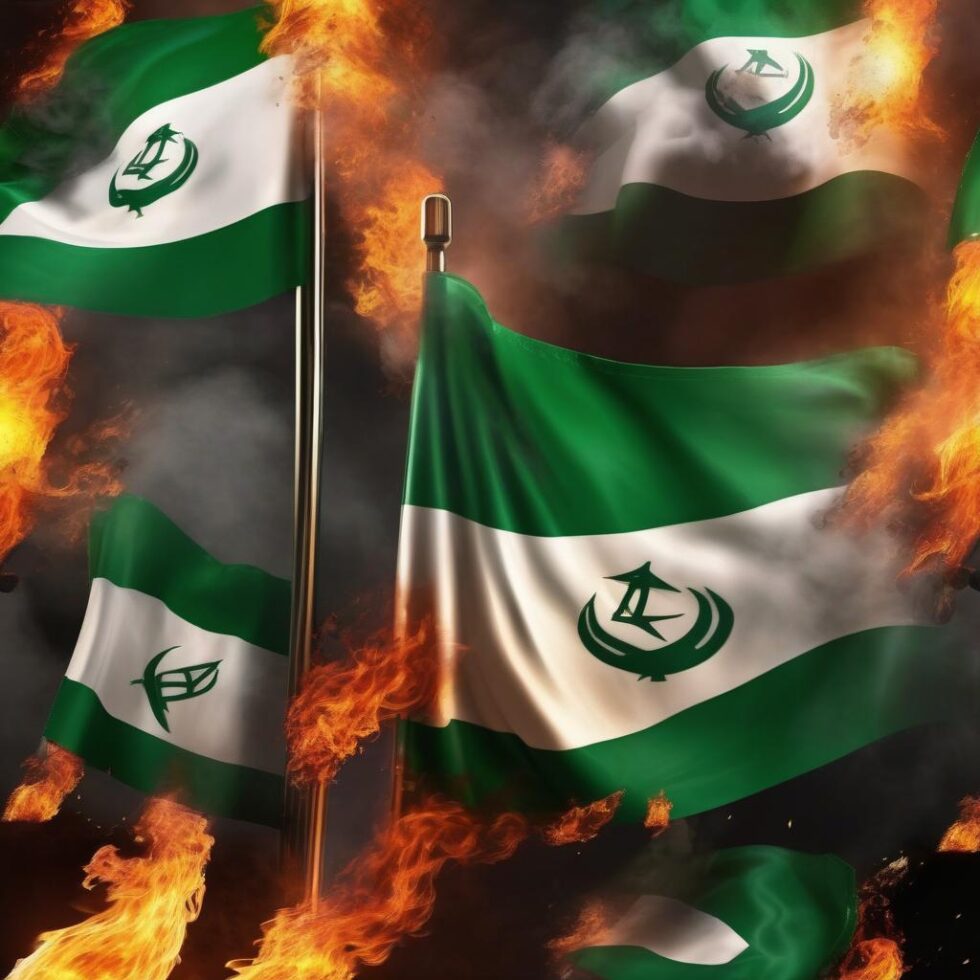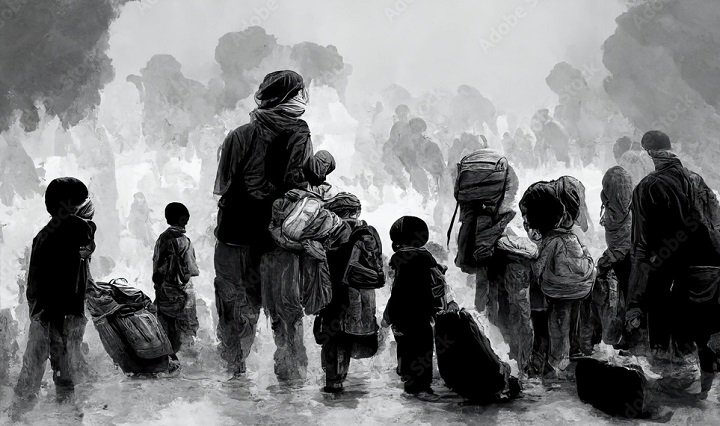
Hamas had a very effective three-pronged strategy against Israel, but it lacked support from Muslim states. Now, the attack on Iran shifts the entire calculation.
The Israeli-Iranian war is in full swing, and it threatens to spread even further. It may be the right time to look at some of its roots.
Hamas’s offensive plan against Israel hinged on a three-pronged hybrid strategy with two lines of defense, where traditional fighting played only a minor role. It primarily focused on a comprehensive and effective political communication effort. This is an example of new hybrid warfare, first theorized by Russian generals, to which Israel and the West were, and possibly still are, unprepared.
The attack on Iran, beyond the bombing, is also multi-pronged, although it’s unclear whether it will include a comprehensive political communication component and how effective it will be.
Hamas’s Effort
The first prong was to build a sprawling network of deep tunnels that could allow Hamas fighters to move around all of Gaza undetected and hide weapons and supplies. The network was protected against flooding or gas attacks by imprisoning Israeli hostages—they would die in the event of flooding.
Short of that, some Israeli forces might have believed that the tunnels could be detected and systematically demolished at the start of the offensive. But the underground network proved far more extensive and deeper than anticipated.
The second prong was to have two million Palestinian civilians willing or coerced into dying. They were left in the open to be killed by Israeli strikes, deliberately used as propaganda fodder to pierce the hearts of Israelis and Westerners who loathe bloodshed.
Certainly, not all Palestinians are willing to be killed. Still, decades of absence from Gaza’s daily life make it difficult for Israel to distinguish who’s who among the wailing crowds. Hamas duly infiltrates these crowds.
The third prong is the propaganda campaign in Western countries promoting the “genocide” narrative. Every Israeli military success and strike on Hamas bases was used against Israel. The destruction, civilian casualties—acceptable in many other military campaigns—were attributed to Israel and not to Hamas, which left civilians undefended and out of the tunnels.
This coordinated strategy created a paradox: the more Israel advanced in its anti-Hamas efforts, the more its military successes were exploited as political blows. Israel fought for two years using traditional anti-guerrilla tactics, while Hamas utilized Israeli warfare as ammunition for its hybrid strategy. Politically, the Israeli leadership seemed to lose control. Iran had been trying to push the “genocide” label for Gaza for the past two decades but got little or no traction. In the past two years, it managed to stick and spread.
Moreover, Hamas had two lines of defense: it evacuated its leaders abroad, keeping them mostly unaffected by the fighting, and Iran was the puppet master behind the scenes, maneuvering its proxies in the region (Hezbollah in South Lebanon, the Assad regime in Syria, the Houthis in Yemen, and Iraqi Shiite militias) to keep Israel on the ropes.
Israeli Reaction
Israel was unprepared for the tunnels, civilian casualties, and Western propaganda about genocide. Its response was never systematic but reactive and piecemeal. The narrative of Palestinian “genocide” has driven the conflict for over two years.
Israel has never been able to counter this narrative effectively because it has not offered an alternative. For example, stating, “We don’t want to kill all Gaza’s Palestinians, but we want them to convert to Judaism, Catholicism, or Atheism,” could have been an option, but it was never presented.
The genocide narrative was so powerful that some Israelis began to “own” it, shouting, “All Gaza Palestinians are terrorists,” or proposing ill-conceived plans to relocate Palestinians from Gaza. Both ideas echo Nazi plans for the Jewish final solution, fueling the “genocide” narrative further.
This confusion and mishandling have led to dissent among Jews and Israelis worldwide, further complicating the situation. This internal split in Israel has made it tricky for Israel and the Western world to address Iran and Hamas’s three-pronged strategy effectively.
The general Israeli response, unable to reach a political consensus and pressured by Iran, has been to seek an essentially military solution. It has decapitated Hezbollah, helped eliminate the Assad regime in Syria, battered the Houthis, and targeted Iran and its nuclear assets.
Ostensibly, the goal is to compel Iran to press Hamas to surrender. It’s a complex game involving Russia and China, both with stakes in Tehran’s future.
Diplomacy
However, Hamas’ political success had an upside for Israel – it scared other Muslim countries. Diplomatically, Iran-Hamas’s strategy has been an unprecedented disaster across the Muslim world. After decades of soft or hard blackmail by Palestinian and other Muslim extremists (PLO, Al-Qaeda, ISIS), many Muslim countries have merely paid lip service to Hamas’ cause, especially since Iran’s backing of Hamas is viewed with suspicion.
The Israeli attack has underscored this reality. Saudi Arabia, Jordan, Syria (and by extension, Turkey), and Iraq are all cooperating in intercepting Iranian drones targeting Israel.
Most importantly, these attacks are carried out thanks to local Iranian intelligence. This demonstrates that Israel has a vast, well-embedded network of assets within Iran willing to risk their lives fighting the regime. It indicates that large segments of the local population are sympathetic to Israel rather than the Ayatollahs.
This constitutes a delicate issue for the Iranian regime. Some officials’ families, friends, or even siblings may be fed up with the current Iranian situation. In theory, the ayatollahs, who have been in power for nearly half a century, are sophisticated enough to recognize when it’s time to retreat.
However, a retreat or settlement on Gaza could expose broader vulnerabilities, especially considering Ukraine, where Russia is mounting its summer offensive. While unlikely to be very successful, a total failure could have disastrous consequences for Russian President Vladimir Putin.









